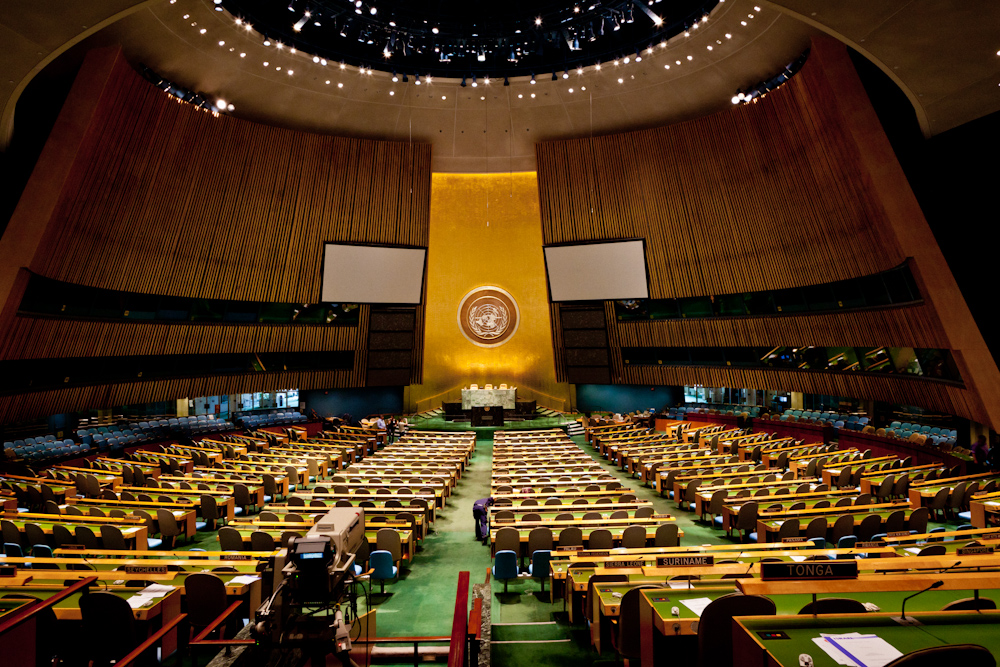The UK and France are trying to prevent a United Nations (UN) General Assembly resolution that would set up an international scientific study into the effects of nuclear war. The resolution would set up a 21-member Scientific Panel to review the social and physical effects of nuclear war in 2025 and 2026, reporting back to the General Assembly in 2027. A vote on the resolution will take place in the First Committee at the start of November. If that vote is successful, the proposal would go forward for consideration by the UN General Assembly.
In the past the UN has published studies on the effects of nuclear war, but their last publication was a report to the UN Secretary General in 1988. That report included then-novel research on the climate effects of nuclear conflict, including the ‘nuclear winter’ effect. However, no equivalent has been produced drawing on the decades of research into climate modelling since, or on the developments in other fields.
The push for an updated study originated with the Scientific Advisory Group to the Treaty on the Prohibition of Nuclear Weapons (TPNW), but it builds upon work in other scientific bodies. In 2023 the US National Academy of Sciences found that the US Department of Defence’s modelling of the consequences of nuclear war is focussed on short-term effects and is lacking in numerous respects. In April 2024 the national science academies of the G7 countries made a joint call for the scientific community to research and communicate the effects of nuclear conflict.
NIS understands that British and French diplomats have been lobbying other states, particularly NATO member states, to oppose the resolution. This opposition appears to be founded on a fear that highlighting the effects of nuclear conflict will further reduce the legitimacy of nuclear weapons and the isolation of nuclear possessor states. Opposition to the TPNW may also play a role, with support for that treaty having arisen from the Humanitarian Initiative conferences, which highlighted the consequences of nuclear weapons use. The UK and France seem to be pushing for a joint NATO position of opposing an updated study.
The resolution, which is sponsored by Austria, Brazil, Chile, Egypt, Fiji, Ireland, Kazakhstan, Kiribati, Liechtenstein, Mexico, New Zealand, Norway, Palau, Philippines, Samoa, South Africa, Switzerland, Thailand, Tonga, and Uruguay, may be voted upon as early as November 1st. The UN General Assembly considers proposed resolutions through several thematic committees, with the First Committee dealing with matters of Disarmament and International Security. All states can vote on resolutions in the First Committee, which is scheduled to sit until 8th November. If a General Assembly vote follows, that would either be later in November, or early December.
